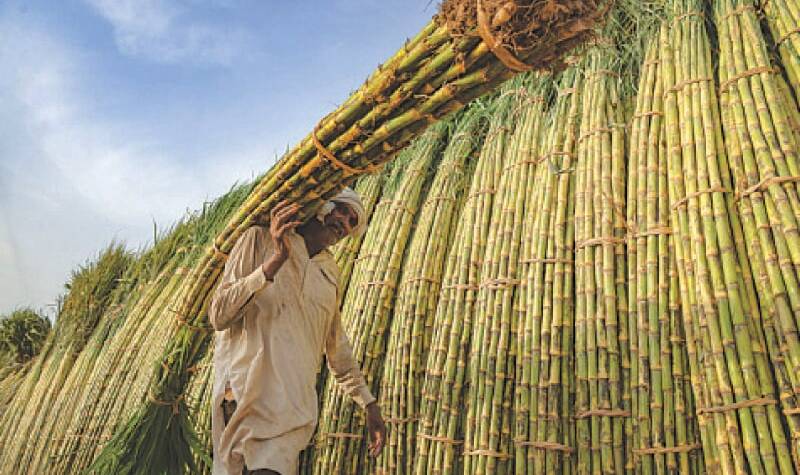ghazi52
PDF THINK TANK: ANALYST

- Joined
- Mar 21, 2007
- Messages
- 101,817
- Reaction score
- 106
- Country
- Location
Next phase of CPEC to include agricultural sector: PM Imran Khan
January 1, 2021

ISLAMABAD: Prime Minister Imran Khan said on Friday that the next phase of the China-Pakistan Economic Corridor (CPEC) would lay emphasis on the agricultural sector.
Speaking at a ceremony in Islamabad, the premier regretted that the previous government had ignored the sector. "Pakistan is an agricultural country," he stressed.
PM Imran Khan said the government was working with the Chinese officials on increasing agricultural products and using their methods. "The next phase of the CPEC includes boosting the agricultural sector."
Learning from China
The premier once again admired China for its strategies and asserted that the Chinese model of development suits Pakistan's needs the best.
"If we can learn from any one country in the world, it is China. Their development model suits Pakistan the best," he said. "The speed with which China developed in the last 30 years is something we can learn from."
He added that Beijing had managed to prove that poverty alleviation is true development.
Relocation of Chinese industries to Pakistan
The premier said the government was keen on the relocation of Chinese industries to Pakistan "just like Vietnam".
"For this purpose, we have launched special economic zones (SEZs). Next, we aim to convince them to export from Pakistan."
The premier said no government had tried to boost exports in the past 50 years. "This is why we have to go to the International Monetary Fund - when our imports outweigh exports and create a current account deficit."
PM Imran Khan said the government would hold discussions with the Chinese officials on increasing exports in the short term. "Pakistan has great potential," he stressed.
2021 will be the year for Pakistan's economic growth
The prime minister said 2021 would be a year of economic growth, emphasising that the country was already moving in the right direction as essential industries increased productivity.
Giving an example of the construction sector, PM Imran Khan said an increase in cement sales was a clear sign that construction activity is on the rise.
He said the textile industry too was producing at full capacity for the first time in many years, resulting in a "shortage of labour" in the sector.

 www.thenews.com.pk
www.thenews.com.pk
January 1, 2021

ISLAMABAD: Prime Minister Imran Khan said on Friday that the next phase of the China-Pakistan Economic Corridor (CPEC) would lay emphasis on the agricultural sector.
Speaking at a ceremony in Islamabad, the premier regretted that the previous government had ignored the sector. "Pakistan is an agricultural country," he stressed.
PM Imran Khan said the government was working with the Chinese officials on increasing agricultural products and using their methods. "The next phase of the CPEC includes boosting the agricultural sector."
Learning from China
The premier once again admired China for its strategies and asserted that the Chinese model of development suits Pakistan's needs the best.
"If we can learn from any one country in the world, it is China. Their development model suits Pakistan the best," he said. "The speed with which China developed in the last 30 years is something we can learn from."
He added that Beijing had managed to prove that poverty alleviation is true development.
Relocation of Chinese industries to Pakistan
The premier said the government was keen on the relocation of Chinese industries to Pakistan "just like Vietnam".
"For this purpose, we have launched special economic zones (SEZs). Next, we aim to convince them to export from Pakistan."
The premier said no government had tried to boost exports in the past 50 years. "This is why we have to go to the International Monetary Fund - when our imports outweigh exports and create a current account deficit."
PM Imran Khan said the government would hold discussions with the Chinese officials on increasing exports in the short term. "Pakistan has great potential," he stressed.
2021 will be the year for Pakistan's economic growth
The prime minister said 2021 would be a year of economic growth, emphasising that the country was already moving in the right direction as essential industries increased productivity.
Giving an example of the construction sector, PM Imran Khan said an increase in cement sales was a clear sign that construction activity is on the rise.
He said the textile industry too was producing at full capacity for the first time in many years, resulting in a "shortage of labour" in the sector.

Next phase of CPEC to include agricultural sector: PM Imran Khan
ISLAMABAD: Prime Minister Imran Khan said on Friday that the next phase of the China-Pakistan Economic Corridor would lay emphasis on the agricultural sector.Speaking at a ceremony in Islamabad,...








